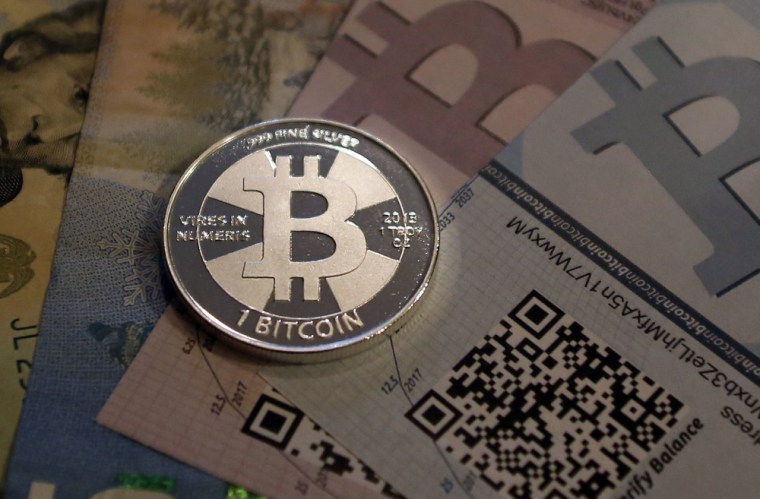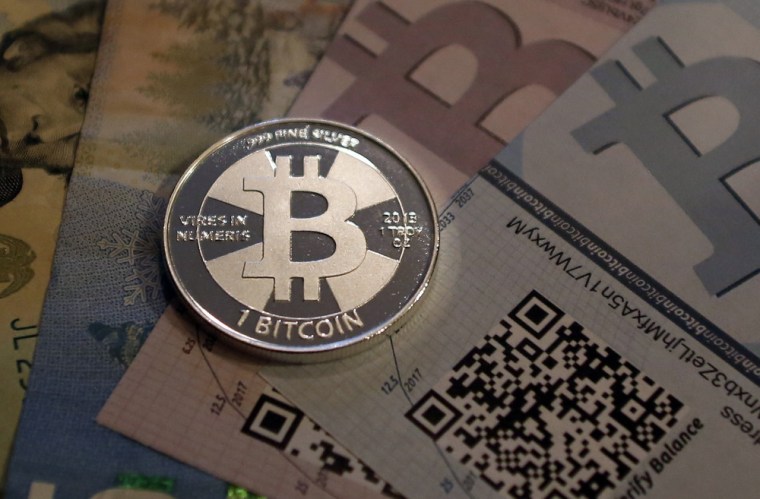
Bitcoin is big business in China, home to more than one-third of the virtual currency's global daily transactions — some $65.7 million. But on Thursday, the country's central bank banned financial institutions from trading in bitcoin, calling it a "commodity that does not share the same legal status of a currency."
While it didn't ban individuals from handling the digital money, China did warn that "the public lacks sufficient understanding of bitcoin, and some individuals have been caught up by faddishness or a speculative mentality in holding, using and trading in bitcoins."
A single bitcoin is currently selling for $1,121, according to Tokyo-based bitcoin exchange Mt. Gox, a dramatic increase from less than $20 in January of this year. It briefly dropped below $1,000 after the statement from China's central bank.
While the announcement might sound like bad news for bitcoin, investors have remained upbeat.
"Until today, we never heard from Chinese officials how they felt about bitcoin," Micky Malka, founder of Ribbit Capital, told NBC News. "For the first time, they are giving it some level of credibility. It's not 100 percent credibility, but no government will give 100 percent credibility to something that has only been in the market for such a short amount of time."
The Bitcoin Foundation, one of the virtual currency's biggest advocates, agreed with China that ordinary citizens should show caution when buying and selling bitcoins.
"The Chinese government is echoing what we have been saying, 'This is risky right now, not ready for mainstream, so tread cautiously,'" Jinyoung Lee Englund, the group's director of public relations, told NBC News.
China isn't the only country wrestling with how to deal with bitcoin.
In November, bitcoin advocates met with politicians in Washington, who had raised concerns over the use of the virtual currency in online black markets like the Silk Road, which let anonymous users sell and buy drugs before it was shut down in October. Lawmakers eventually decided against taking any regulatory action.
The Bank of France raised its own concerns on Thursday, according to Reuters.
"Even if bitcoin does not today meet the conditions to become a credible means for investment that could therefore threaten financial stability, it represents a clear financial risk for those that hold it," a report from the bank said.
Both China and France raised concerns about the anonymous currency being used for illicit activities like money laundering. Warnings from China, however, hold more weight because the country is home to the largest exchange in the world, BTC China, which recently received $5 million in funding from investors from Lightspeed China Partners and Lightspeed Venture Partners.
The exchange, which saw a boost in activity when it eliminated transaction fees in September, has given its own users a warning that's not all that different from the one issued today by the Chinese government.
"Bitcoin trading can be considered a high-risk activity, where bitcoin prices are volatile, and can swing wildly, from day to day," reads BTC China's website. "Please use your extreme judgment when making the decision to invest in, or to sell, bitcoins."
Keith Wagstaff writes about technology for NBC News. He previously covered technology for TIME's Techland and wrote about politics as a staff writer at TheWeek.com. You can follow him on Twitter at @kwagstaff and reach him by email at: Keith.Wagstaff@nbcuni.com.
